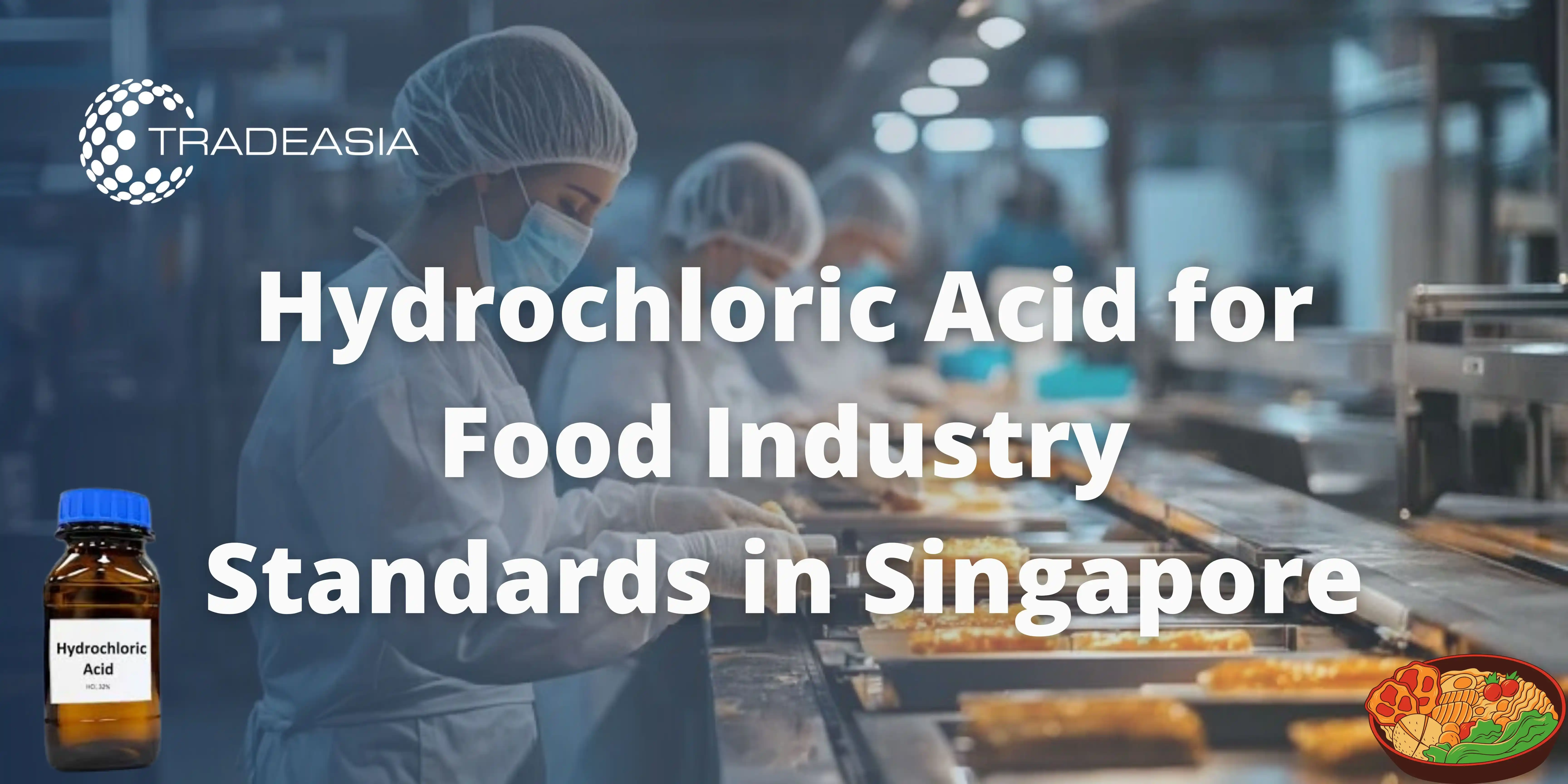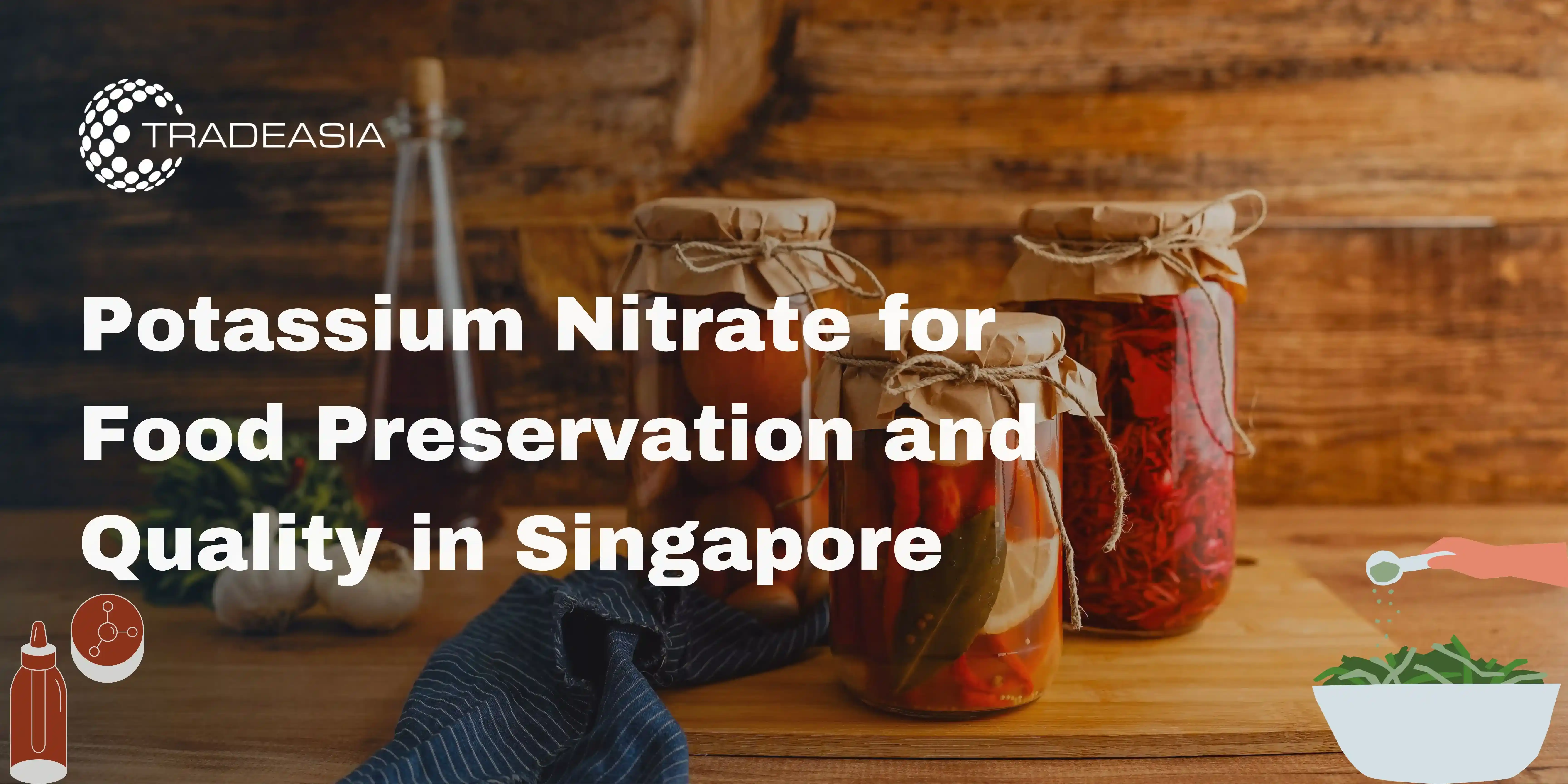Potassium Metabisulfite (K₂S₂O₅), also known as E224 in food additive classification, is widely recognized for its dual role as a preservative and antioxidant. In Singapore’s competitive and highly regulated food industry, it is valued for its ability to extend shelf life, prevent microbial growth, and maintain product quality. This compound is particularly significant in beverages like wine and beer, dried fruits, and other processed foods where oxidation and spoilage can degrade both taste and nutritional value.
Singapore’s food manufacturing sector is deeply integrated into global trade, and maintaining high food safety standards is essential for exports and domestic consumption. Potassium Metabisulfite helps manufacturers meet these standards while optimizing production costs. Its antioxidant properties also protect against discoloration, flavor changes, and nutrient loss factors that strongly influence consumer perception and marketability.
The compound is regulated under Singapore Food Agency (SFA) guidelines, ensuring its use is both safe and compliant with international standards. Understanding its applications, specifications, and safety considerations is crucial for manufacturers seeking to remain competitive in both local and international markets.
Chemical Properties and Functional Role
Potassium Metabisulfite is a white crystalline powder with a pungent sulfur odor, soluble in water, and yielding sulfur dioxide (SO₂) when dissolved. This released SO₂ is the active component responsible for its preservative and antioxidant effects. In food processing, its action is twofold: it inhibits microbial activity and slows oxidative reactions that can cause spoilage.
From a chemical standpoint, the compound works by disrupting enzyme activity in bacteria, molds, and yeasts, thereby preventing their growth. Simultaneously, its antioxidant effect prevents oxidation of fats, pigments, and vitamins, preserving both sensory and nutritional attributes of food products. These dual functions make it a cost-effective solution for many producers.
Its stability under normal storage conditions and its effectiveness at low concentrations make it an attractive choice for large-scale production. Moreover, it is compatible with various food matrices, including liquids, powders, and semi-solid products, offering versatility across multiple food categories.
Applications in Beverage Preservation
One of the most well-known uses of Potassium Metabisulfite is in winemaking and brewing. In these industries, it serves both as an antimicrobial agent and as an antioxidant, preventing unwanted fermentation and protecting against oxidation. The compound helps stabilize flavor profiles, ensuring that beverages retain their intended taste over time.
In wine production, it is added during crushing, fermentation, and bottling stages to prevent bacterial contamination and spoilage. The antioxidant property also helps retain the wine’s color, aroma, and freshness. Similarly, in beer production, it maintains clarity and prevents the development of stale flavors caused by oxidation.
In non-alcoholic beverages like fruit juices and soft drinks, Potassium Metabisulfite helps preserve color and taste during storage and distribution. Given Singapore’s tropical climate, where high humidity and temperature can accelerate spoilage, this additive provides a critical safeguard in maintaining beverage quality for both domestic sales and exports.
Role in Dried Fruit and Food Processing
Potassium Metabisulfite is extensively used in preserving dried fruits such as apricots, raisins, and apples. It prevents browning by inhibiting enzymatic oxidation, thereby maintaining the fruit’s bright and appealing color. This is especially important for export markets, where visual quality strongly influences consumer choice.
In food processing, the compound also finds applications in pickled vegetables, seafood, and processed potatoes. It helps retain color, prevent microbial spoilage, and extend shelf life without significantly altering the taste profile of the food. This makes it a valuable ingredient in ready-to-eat and convenience foods, which have seen rising demand in Singapore due to busy lifestyles.
For bakery products, Potassium Metabisulfite can be used as a dough conditioner, improving dough elasticity and texture. Although used in smaller amounts compared to other sectors, it still plays a vital role in ensuring consistent quality in mass production.
Antioxidant Properties and Nutrient Retention
The antioxidant function of Potassium Metabisulfite is critical for preventing the deterioration of sensitive nutrients, particularly vitamins A, C, and E. By inhibiting oxidation, it helps maintain the nutritional value of fortified foods and beverages, which is essential for meeting labeling claims and consumer expectations.
In addition, its antioxidant action protects natural pigments like carotenoids and anthocyanins from degradation, ensuring that foods maintain their intended color during shelf life. This is particularly beneficial for fruit juices, jams, and sauces, where visual appeal is a major selling point.
Nutrient retention also has implications for food security and waste reduction. By slowing spoilage, Potassium Metabisulfite helps reduce the volume of discarded food products, which aligns with sustainability goals in Singapore’s food industry.
Safety, Regulations, and Consumer Considerations
In Singapore, the use of Potassium Metabisulfite in food is regulated by the SFA, which specifies maximum permissible levels depending on the food category. Compliance with these regulations is essential for ensuring consumer safety and avoiding legal penalties.
While generally recognized as safe (GRAS) when used within approved limits, excessive consumption can cause allergic reactions in sensitive individuals, particularly those with asthma. For this reason, food labeling regulations require clear declaration of sulfite content when it exceeds specified thresholds.
Manufacturers must also ensure that their supply chain adheres to international standards like Codex Alimentarius and comply with import/export requirements for different markets. This not only assures safety but also strengthens brand reputation in competitive global markets.
Potassium Metabisulfite in Wine and Alcoholic Beverage Export from Singapore
Singapore, though not a primary wine producer, serves as a major hub for the re-export of alcoholic beverages to regional markets in Southeast Asia. Potassium Metabisulfite plays a pivotal role in ensuring that wines and beers transported through Singapore’s ports maintain their quality during transit. Its antimicrobial and antioxidant effects are vital for preventing spoilage, especially considering that some shipments travel through humid tropical routes. This preservation ensures that the products meet the quality expectations of importing countries.
In wine, the compound is often used at several stages before fermentation to prevent wild yeast activity, during fermentation to control oxidation, and at bottling to stabilize the final product. These interventions maintain the clarity, flavor profile, and aromatic integrity of wines, which can be easily compromised by temperature fluctuations and oxygen exposure.
For beer exports, Potassium Metabisulfite helps extend the shelf life, particularly for craft beers that have less pasteurization and filtration. In Singapore’s export-oriented food and beverage market, where products may be stored in warehouses before shipment, the use of this preservative ensures consistent quality across batches, protecting brand reputation in competitive global markets.
Environmental Considerations and Waste Reduction
Sustainability has become a central focus in Singapore’s food manufacturing sector, aligning with the government’s Zero Waste Masterplan. Potassium Metabisulfite indirectly supports these sustainability goals by reducing food waste through prolonged shelf life. For perishable goods like fruit juices, dried fruits, and ready-to-eat meals, spoilage is a primary cause of waste, both in retail and household settings.
The compound’s ability to slow microbial growth and oxidation allows products to be stored longer without quality degradation, which helps reduce the frequency of product recalls and disposals. This is especially important for exporters shipping to distant markets, where transportation and customs clearance can add weeks to delivery times.
From an environmental compliance perspective, manufacturers must also ensure that the disposal of waste containing sulfites is managed responsibly. While Potassium Metabisulfite is safe within food limits, high concentrations in wastewater can affect aquatic life. Companies in Singapore often implement water treatment systems to neutralize sulfites before release, ensuring alignment with National Environment Agency (NEA) regulations.
Innovations and Alternatives in the Use of Sulfites
In recent years, innovation in food technology has led to new methods of using Potassium Metabisulfite in combination with other preservation techniques. For example, modified atmosphere packaging (MAP) combined with low-dose sulfites can achieve longer preservation with reduced additive content, addressing consumer concerns about chemical preservatives.
Some manufacturers are experimenting with encapsulated forms of Potassium Metabisulfite, allowing for controlled release during storage and transport. This helps maintain consistent antioxidant activity without overdosing, which is critical in sensitive products like fresh-cut fruits.
Although alternatives such as ascorbic acid (vitamin C) or natural plant extracts are gaining popularity, Potassium Metabisulfite remains unmatched in cost-effectiveness and dual functionality. Its compatibility with modern preservation systems ensures that it will continue to be a staple in Singapore’s food industry, particularly for export products requiring extended stability.
Conclusion
Potassium Metabisulfite stands as an indispensable ingredient in Singapore’s food industry, combining cost-effectiveness, versatility, and compliance with strict safety regulations. Its dual function as both a preservative and antioxidant ensures that products from wines and beers to dried fruits and ready-to-eat meals retain their freshness, flavor, and nutritional quality throughout storage and distribution.
Beyond safeguarding product quality, its role in supporting Singapore’s export-driven economy cannot be understated. By extending shelf life and preventing spoilage during long-distance shipments, it enhances the competitiveness of local manufacturers in global markets while reinforcing Singapore’s reputation for high-quality food production.
As sustainability and consumer awareness continue to shape the industry, innovations such as controlled-release sulfites and integrated preservation technologies promise to optimize its use while minimizing environmental impact. While alternatives may emerge, Potassium Metabisulfite’s proven reliability and adaptability ensure it will remain a key preservation solution for Singapore’s food sector in the years to come. For more information or to place an order for Potassium Metabisulfite for your food industry needs in Singapore, please contact us.


Leave a Comment